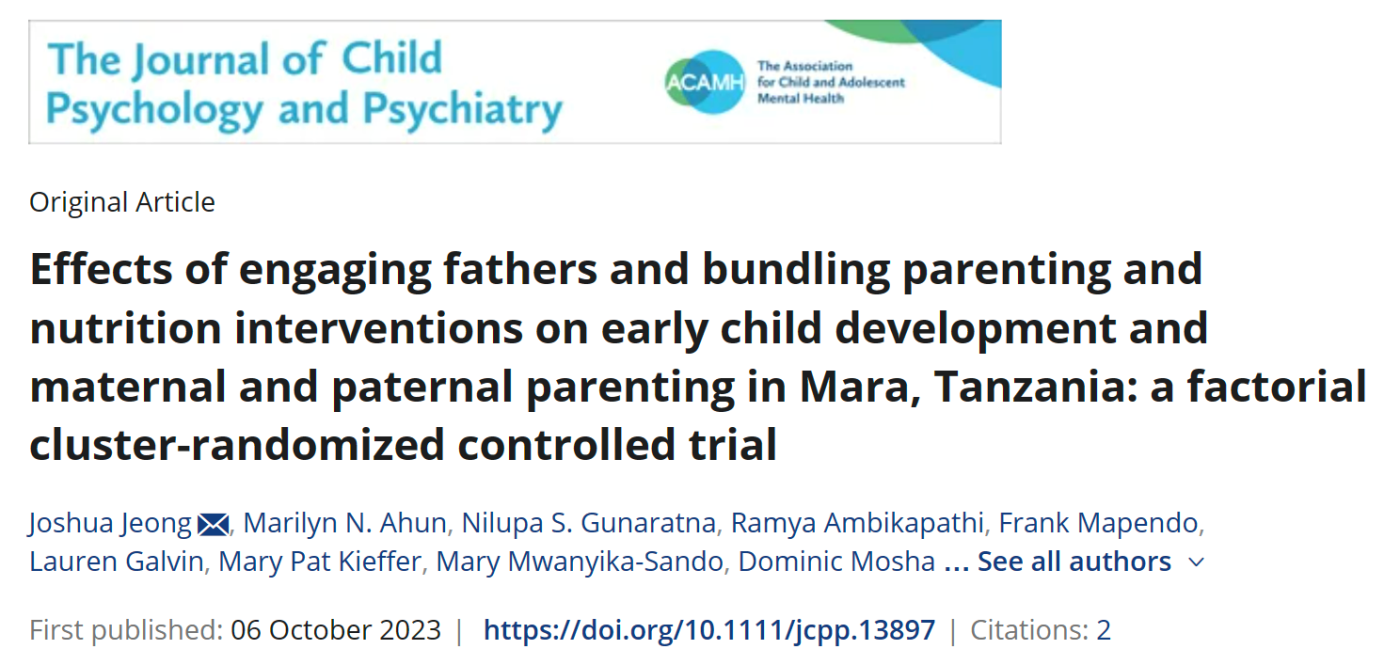
Background
Multicomponent interventions are needed to address the various co-occurring risks that compromise early child nutrition and development. We compared the independent and combined effects of engaging fathers and bundling parenting components into a nutrition intervention on early child development (ECD) and parenting outcomes.
Methods
We conducted a 2×2 factorial cluster-randomized controlled trial across 80 villages in Mara Region, Tanzania, also known as EFFECTS (Engaging Fathers for Effective Child Nutrition and Development in Tanzania; ClinicalTrials.gov, NCT03759821). Households with children under 18 months of age residing with their mother and father were enrolled. Villages were randomly assigned to one of five groups: a nutrition intervention for mothers, a nutrition intervention for couples, a bundled nutrition and parenting intervention for mothers, a bundled intervention for couples, and a standard-of-care control. Interventions were delivered by trained community health workers through peer groups and home visits over 12 months. Mothers, fathers, and children were assessed at baseline, midline, and endline or postintervention. We used a difference-in-difference approach with intention-to-treat analysis to estimate intervention effects on ECD (Bayley Scales of Infant and Toddler Development, third edition) and maternal and paternal parenting and psychosocial well-being.
Results
Between October 29, 2018, and May 24, 2019, 960 households were enrolled (n = 192 per arm). Compared to nutrition interventions, bundled interventions improved children's cognitive (β = .18 [95% CI: 0.01, 0.36]) and receptive language development (β = .23 [0.04, 0.41]). There were no differences between interventions for other ECD domains. Compared to nutrition interventions, bundled interventions achieved additional benefits on maternal stimulation (β = .21 [0.04, 0.38]) and availability of home learning materials (β = .25 [0.07–0.43]) and reduced paternal parenting distress (β = −.34 [−0.55, −0.12]). Compared to interventions with mothers only, interventions that engaged fathers improved paternal stimulation (β = .45 [0.27, 0.63]).
Conclusions
Jointly bundling parenting components into nutrition interventions while also engaging both mothers and fathers is most effective for improving maternal and paternal parenting and ECD outcomes.
